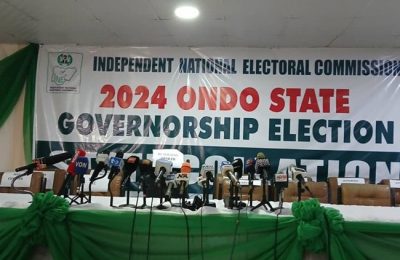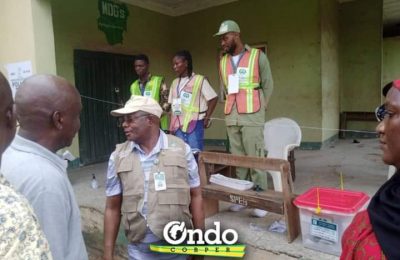By Fiyinfoluwa Alagbe
HOW much longer can the voices of millions of disillusioned Nigerians be ignored? Nigeria, often hailed as the “Giant of Africa,” is once again the stage for widespread protests that resonate with the nation’s deep-seated struggles and aspirations. As citizens take to the streets in unprecedented numbers. The ongoing protests are not just a reaction to immediate grievances but a powerful manifestation of the collective cry for justice, good governance, and systemic change. This movement is a testament to the resilience and unyielding spirit of Nigerians who demand a better future. Understanding the current protest movement requires delving into its roots, examining its implications, and reflecting on the path forward for this diverse and dynamic nation. To grasp the essence of the ongoing protests, it’s crucial to consider the historical and socio-political context of Nigeria. The country has a long history of civil unrest and protest movements, often sparked by government policies, economic hardship, and systemic corruption. From the anti-colonial struggles to the June 12 protests in the 1990s, Nigerians have repeatedly shown their willingness to challenge oppression and demand accountability. The immediate triggers for the current protests are multifaceted. Key among them is widespread dissatisfaction with police brutality, particularly the notorious Special Anti-Robbery Squad (SARS).

The #EndSARS movement, which gained international attention in 2020, highlighted severe human rights abuses, including extrajudicial killings, torture, and extortion. Despite promises of reform and the eventual disbandment of SARS, many Nigerians feel that little has changed, leading to renewed protests. Moreover, the economic challenges exacerbated by the COVID-19 pandemic have intensified public discontent. High unemployment rates, inflation, and poverty levels have left many Nigerians struggling to make ends meet. The perceived lack of effective government response to these issues has further fueled the protests, creating a potent mix of social, economic, and political grievances. The ongoing protests in Nigeria are remarkable for their diversity and inclusivity. Unlike past movements that may have been confined to specific regions or demographics, this wave of protests has united Nigerians across age, gender, and ethnic lines. Youths, in particular, have been at the forefront, leveraging social media to mobilize, organize, and amplify their voices. Platforms like Twitter, Facebook, and Instagram have played a crucial role in shaping the narrative, disseminating information, and garnering international support. Women have also been prominent leaders and participants in the protests, challenging patriarchal norms and advocating for gender equality. The protests have provided a platform for addressing broader issues such as gender-based violence and discrimination, further enriching the movement’s agenda.
Furthermore, the protests have seen significant participation from various professional groups, including lawyers, doctors, and academics, who lend their expertise and legitimacy to the cause. This diverse coalition underscores the widespread nature of the grievances and the collective desire for systemic change. The influence of social media and technology on the current protests cannot be overstated. Digital platforms have democratized information dissemination, allowing real-time updates and coordination among protestors. Hashtags like #EndSARS, #EndBadGovernance, and #ReformNigeria have trended globally, drawing international attention and solidarity. Crowdfunding platforms have been instrumental in sustaining the protests, enabling the collection of donations to support logistics, medical supplies, and legal aid for arrested protestors. The use of cryptocurrency has also emerged as a means to circumvent government attempts to freeze protest-related bank accounts. The internet has facilitated global solidarity, with the Nigerian diaspora and international allies voicing their support. This global visibility has pressured the Nigerian government to respond and has underscored the interconnectedness of modern protest movements.
The Nigerian government’s response to the protests has been a mix of concessions, rhetoric, and repression. While initial responses included the announcement of SARS disbandment and promises of police reform, many protestors viewed these actions as superficial and insufficient. The persistence of security force violence, including the tragic Lekki Toll Gate incident where peaceful protestors were reportedly shot, has only deepened mistrust. International reactions have ranged from expressions of solidarity to calls for accountability. Global figures, including celebrities and politicians, have used their platforms to highlight the protests. Organizations like Amnesty International have documented human rights abuses, further amplifying the call for justice. The ongoing protests in Nigeria have profound implications for the country’s future. Firstly, they signal a burgeoning civic consciousness and a renewed engagement with democratic processes. The protestors’ demands for accountability, transparency, and good governance reflect a deepening desire for democratic norms. Secondly, the protests highlight the urgent need for systemic reforms.
Addressing police brutality is only the first step; comprehensive reforms are needed across the justice system, economic policies, and governance structures to address the root causes of public discontent. Thirdly, the protests underscore the power of youth and digital activism. Nigeria’s young population is not only its largest demographic group but also its most dynamic and politically engaged.

Harnessing this potential is crucial for the country’s development and stability.
Finally, the protests have implications for Nigeria’s regional and international standing. As Africa’s most populous country and one of its largest economies, Nigeria’s stability and governance are of significant interest to the continent and the world. The way the government responds to these protests will shape its international reputation and influence its diplomatic relationships.
Moving Forward: A Path to Reconciliation and Reform
The path forward for Nigeria in the wake of these protests is fraught with challenges but also filled with opportunities. Reconciliation and reform must be the cornerstones of any forward-looking strategy. Here are key steps that could help chart a positive course. Establishing an independent oversight body to investigate police misconduct and ensure accountability is crucial. Training programs that emphasize human rights and community policing can help rebuild trust between law enforcement and the public. Addressing the economic grievances of the protestors requires comprehensive economic policies that create jobs, reduce poverty, and control inflation. Investing in education, infrastructure, and technology can help stimulate sustainable economic growth. Again, strengthening democratic institutions and processes is essential. This includes ensuring free and fair elections, promoting transparency in government operations, and combating corruption at all levels. Also, creating avenues for meaningful youth participation in governance can harness the energy and innovation of Nigeria’s young population. Youth councils, mentorship programs, and inclusive policy-making processes can help bridge the gap between the government and young citizens. Besides, facilitating a national dialogue that includes diverse stakeholders can help address deep-seated grievances and foster a sense of national unity. This dialogue should be inclusive, transparent, and geared towards finding common ground.
The international community can play a supportive role by providing technical assistance, advocating for human rights, and supporting economic development initiatives. Constructive engagement rather than punitive measures can help Nigeria navigate its challenges.
Conclusion
The ongoing protests in Nigeria are a powerful reminder of the nation’s enduring spirit and the unyielding demand for justice and good governance. While the challenges are significant, the opportunities for meaningful change are equally profound. By embracing genuine reforms, fostering inclusive dialogue, and leveraging the energy of its youth, Nigeria can chart a path toward a more just, prosperous, and democratic future. The voices on the streets are not just a call for change but a testament to the resilience and hope that define the Nigerian spirit.
- Alagbe, a 400-level student at the Department of English and Literary Studies, Lead City University, is on internship at the Nigerian Tribune.
READ ALSO: Protest: Police arrest 27 for defying curfew, looting in Plateau







